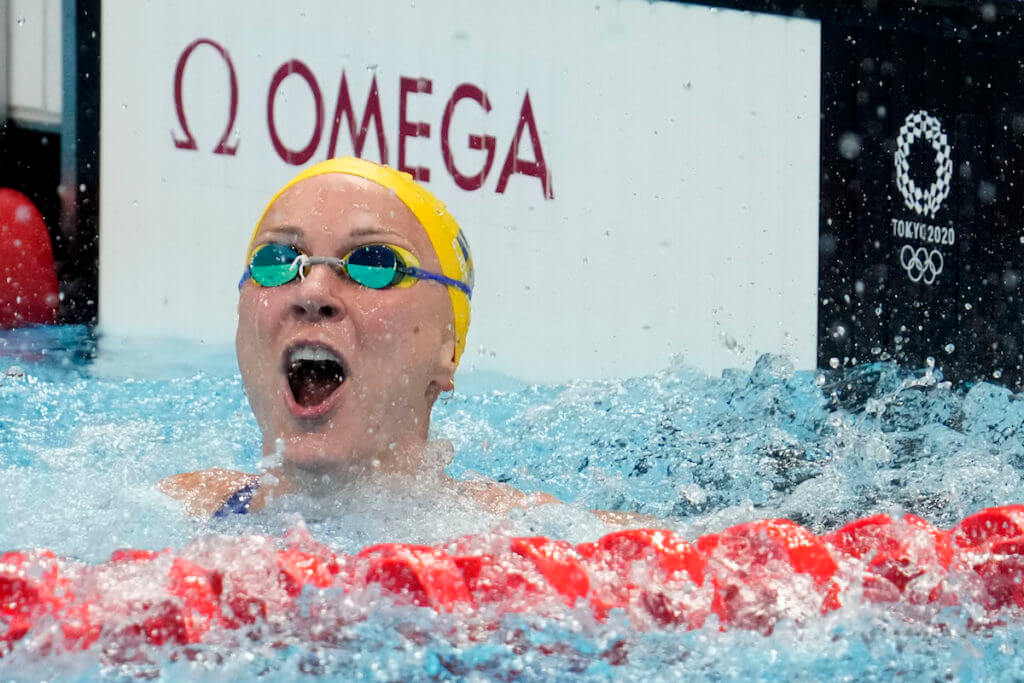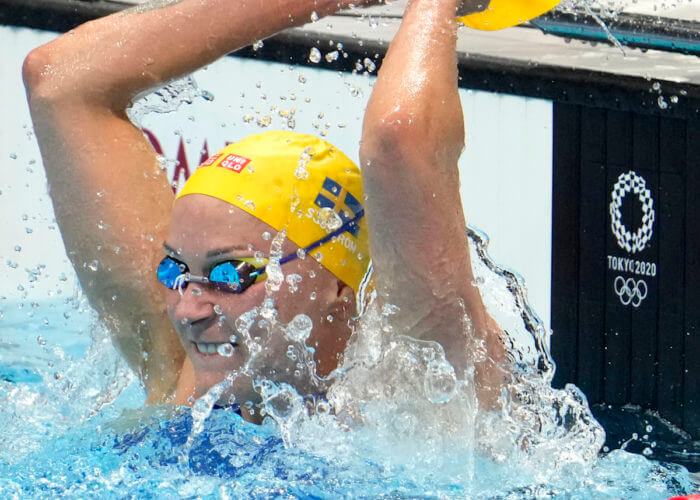Sarah Sjostrom Silver Medal a Silver Lining for Her, European Women, Who Went Without Gold For First Time Since 1972

Editorial content for the 2021 Tokyo Olympic Games coverage is sponsored by GMX7.
See full event coverage. Follow GMX7 on Instagram at @GMX7training #gmx7

Sarah Sjostrom was so excited with her silver medal in the 50 freestyle on the final night of swimming at the Tokyo Olympic Games that she celebrated as if she had won gold.
It has been an extremely tough year for Sjostrom, who had an elbow injury just months before the games. She wasn’t expected to be at her best, and she wasn’t — though in fairness her best is world-record pace kind of swims and that isn’t a fair standard to hold against anyone.
Still, she swam well in a lot of events, making several finals, but didn’t medal until the last day.
It was great to see that kind of emotion from the Swedish star, as her reaction told the story of how difficult the quick comeback was after her injury and just how much winning a medal meant to her. Plus her 24.07 matched her best recent time pre-injury.

Sarah Sjostrom. Photo Courtesy: Robert Hanashiro
But that race was one of the few thrills for European women in Tokyo.
Sjostrom and Denmark’s Pernille Blume went 2-3 in the 50 freestyle on the final night behind Australia’s Emma McKeon and that doubled the number of medals won by European women throughout the meet.
Italy’s Simona Quadarella won a bronze in the 800 free and Germany’s Sarah Kohler won bronze in the 1500 free.
So just four medals and Sjostrom’s the only silver.
For comparison, in 2012, European women won four gold and 14 medals overall. In 2008, they won six gold and 12 total medals. In 2004, it was six gold and a stunning 21 total medals. In 2000, it was eight gold and 20 total medals.
The last time the European women went without a gold medal was the 1972 Munich Games.
Several European gold medalists of the past were in Tokyo this week, including Sjostrom, Blume, Hungary’s Katinka Hosszu, Italy’s Federica Pellegrini, Ranomi Kromowidjojo of the Netherlands and Mireia Belmonte Garcia of Spain.
In 2016, Hosszu, won both IMs and the 100 back, Sjostrom won the 100 butterfly, Belmonte Garcia own the 200 butterfly and Blume won the 50.
That’s six individual gold medals for European women, who also won seven silver and five bronze.
So the European women went from 18 medals to four, with no gold this year.
There are a lot of factors that go into that. The first is time. Five years between Olympic Games took a toll on older swimmers, including several former medal winners. Some retired between games. Some weren’t at their best.
The flip side of that issue is the youth movement, particularly from the U.S. who saw several teenagers claim medals.
For Sjostrom, who won three individual medals in Rio, injuries definitely were the deciding factor. We will never know if she would have won gold in any of those events, but it seems like she would have won more than one medal had she been healthy at least.
While it was disappointing, her silver medal to close the meet was a welcome sight to the world of swimming, and a silver lining for her and all of Europe.
With a a not-100-percent Sarah Sjostrom claiming a silver medal, and just three years until Paris 2014, there should be at least one more shot for the world to see how great a healthy Sjostrom can be as she leads the next European charge.




